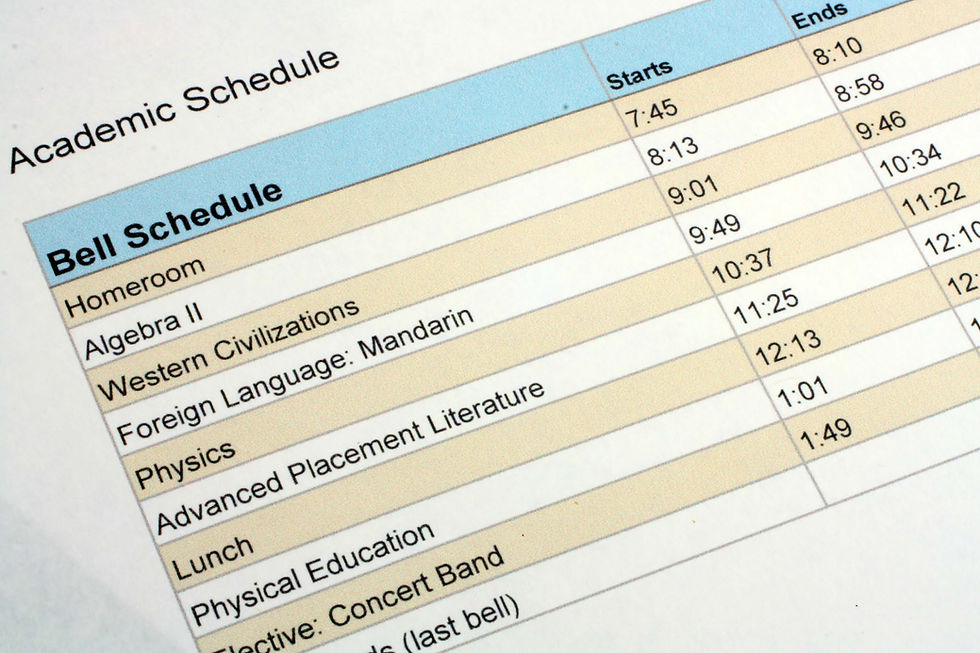We are not Rick Singer
- Alison Merzel

- Mar 22, 2021
- 4 min read
If you had forgotten about the huge college admissions scandal that happened in 2019, you have likely been reminded again with the Netflix release of Operation Varsity Blues, I watched the documentary this weekend, but had previously heard many of the details presented when I listened to the Gangster Capitalism podcast by Andrew Jenks, entitled The College Admissions Scandal.
I had just launched my independent educational consulting practice shortly before news of this scandal broke. I remember the feeling of disgust and anger when Rick Singer, a so-called educational consultant, took millions of dollars from wealthy families to bribe college coaches and administrators, and pay individuals to falsely inflate standardized test scores so their children could gain access to elite colleges and universities.
This was not what educational consulting was about. This was not the field I entered. This whole operation was the antithesis of what qualified, credible, knowledgeable, professional educational consultants stand for. As I tell each of my families, there are 4,000 colleges and universities in the United States that grant degrees and most of them accept a majority of students. I work with students to help them identify a set of schools that rank highly on the criteria that are of most importance to them, not schools that are highly ranked in publications on factors that have nothing to do with the student's academic, social, emotional or financial needs.
Students who work with educational consultants like me will hear the oft-repeated adage, "It is not where you go but what you do when you are there that matters," and may be reminded to check out Frank Bruni's best-selling book, Where You Go Is Not Who You'll Be.
It is true that some employers in fields like investment banking and management consulting fill their pipelines from a small set of highly selective schools. It is also true that some colleges have a stronger reputation as pre-professional schools, preparing students to earn admission at higher rates to medical, law, and other professional schools. But, overwhelmingly, it is someone's personal characteristics and attributes that are predictors of their future success, not their alma mater.
Qualified and credible independent educational consultants maintain the highest ethical standards. As a member of the IECA professional association, I promised to adhere to the Principles of Good Practice when I sought out membership and have to annually sign my commitment to these principles to maintain in good standing. If a family were to indicate an interest in hiring me to get their student into XYZ University, I would not agree to work with the family. No ethical educational consultant would make the promise of a guaranteed outcome, as we have no influence at all over admissions decisions or outcomes. Rather, we apply our expertise to counsel students on schools that may be a good fit for them. We have developed an extensive body of knowledge from our educational backgrounds, ongoing professional development, engagement with our professional networks, and previous experience.
Rick Singer was a con man whose "side door" deals worked to sully the reputation of private college counselors, independent educational consultants like me. Yet, when news of this scandal broke, it gave the true professionals in this field the opportunity to reveal why the work we do is so important and explain how these relationships are supposed to go.
According to the U.S. Department of Education, the student-to-counselor ratio in public schools averages 476:1 and public high school students receive about 38 minutes of personal counseling on college admission over 4 years. College admissions has become more competitive, more complicated, and more confusing. Colleges that used to draw primarily from a local or regional pool of applicants have developed strong national reputations as digital marketing and social media have extended their reach and student mobility has increased. Students and families need guidance through this process to maximize their chances of finding the right fit. We can all agree that the cost of college has become untenable for many families and that anyone interested in pursuing higher education is looking to make a wise investment. Partnering with a qualified educational consultant can ensure that you are making the right choice based on the student's needs as well as the family's budget.
When you are looking for a college consultant, look for someone who is affiliated with a professional organization like IECA, HECA or NACAC. Look for someone who has a relevant educational background or evidence of continued education in this field. Look for someone who has had previous admissions or counseling experience at a high school, college, or community based organization. If you come across someone who holds a CEP, Certified Educational Planner, this is the highest credential currently offered to consultants in this field. While finding a consultant that will work well with your student and your family should be a priority, make sure you find one who has their finger on the pulse of what is going on, someone who is committed to ongoing professional development, someone who will find you the answer if they don't know it themselves. Then, when you watch the Operation Varsity Blues film or read articles about the scandal, you can take a deep breath and feel confident in knowing that you have placed your trust in someone who only has your student's best interests at heart.


